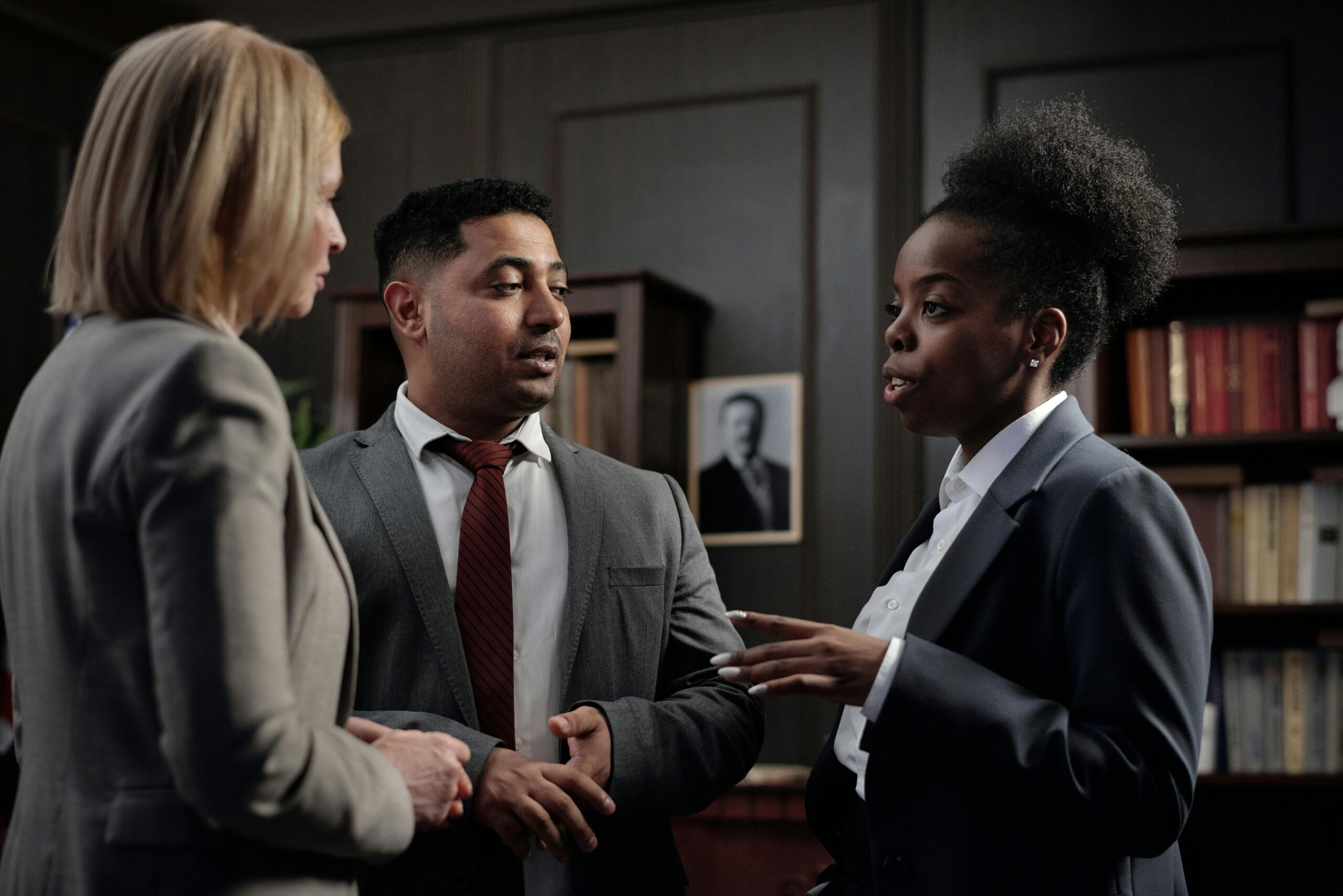For many of us, work is more than just a paycheck. It’s where we spend a good chunk of our waking lives. So when the workplace becomes toxic or unfair, it hits hard—mentally, emotionally, and financially. Over the past few years, Brisbane workers have been pushing back. They’re asking tougher questions about what’s acceptable, what’s legal, and what they’re actually entitled to as employees.
Whether it’s fighting for unpaid wages, pushing back on unreasonable workloads, or dealing with flat-out discrimination, more employees are choosing to speak up rather than suffer in silence. And increasingly, they’re turning to workplace lawyers in Brisbane to help them take that stand—with confidence and legal backup.
Let’s unpack why this shift is happening, what rights workers are standing up for, and how legal support is helping them reclaim their dignity (and sometimes, their job).
The Rise of Employee Awareness
Brisbane’s workforce is waking up. Not in a dramatic, revolution-style way—but in subtle, personal, and powerful ways. One person asks about a weird clause in their contract. Another questions why they’ve been classified as a contractor for years without the benefits of a full employee. Word spreads. People talk. And suddenly, what used to be “just the way it is” starts feeling… wrong.
This awareness didn’t come out of nowhere. The pandemic, for one, made workers reassess what they’re willing to tolerate. It also forced many to become more familiar with workplace rights, remote work policies, and the real consequences of job insecurity. Add to that the growing influence of social media, where stories of unfair treatment spread like wildfire, and you’ve got a workforce that’s both informed and emboldened.
Common Reasons Employees Seek Legal Help
Not every bad day at work is a legal issue. But when certain patterns emerge—especially those that mess with your rights or pay—it’s smart to dig deeper. Here are some of the most common scenarios pushing Brisbane workers to get legal advice:
1. Unfair Dismissal
Getting fired is rough. But getting fired without fair warning, due process, or a valid reason? That’s illegal under Australia’s Fair Work Act. Many employees are learning they might be entitled to compensation or reinstatement if their dismissal doesn’t hold up legally.
2. Workplace Bullying or Harassment
Toxic workplaces can be hard to describe and even harder to prove. But when bullying or harassment becomes frequent and unreasonable, it crosses into legal territory. A good lawyer can help collect evidence, file complaints, and protect the employee from further harm.
3. Discrimination
If you’ve been overlooked, dismissed, or mistreated because of your age, gender, disability, pregnancy, religion, or ethnicity—there’s a case to be made. Brisbane’s anti-discrimination laws, both federal and state-level, are strict. The challenge is often proving it happened.
4. Underpayment or Wage Theft
Whether it’s unpaid overtime, misclassified contracts, or dodgy pay slips, wage theft is far more common than most people think. And it’s not just low-wage jobs affected—creative professionals, hospitality staff, and gig workers are often underpaid without even knowing it.
5. Contract Confusion
Plenty of people sign work contracts without reading the fine print. Others are handed a “casual” title with zero flexibility. Lawyers can clarify rights, fix dodgy terms, and challenge contracts that violate employment laws.
Taking the First Step: Recognising That Something’s Off
Most employees don’t run straight to a lawyer the second something goes wrong. Usually, there’s a long period of hesitation. Maybe it’s fear of retaliation. Maybe it’s uncertainty—“Is this really illegal, or just annoying?” That hesitation is valid. But many rights-based issues don’t get resolved until they’re named, documented, and challenged.
Some early red flags to pay attention to:
- Your hours are cut or changed without discussion
- You’re consistently passed over for promotions or opportunities without explanation
- You’re discouraged from taking sick leave or parental leave
- HR seems more loyal to management than to fair process
- You’re afraid to speak up in meetings—or worse, you’ve given up trying
If any of those sound familiar, it might be worth getting a second opinion. A workplace lawyer doesn’t just file lawsuits—they can also assess whether your concerns are valid and what your next steps could be.
Legal Advice Isn’t Just for Big Cases
You don’t have to be in a legal battle to benefit from legal advice. In fact, many Brisbane employees are using employment lawyers in a more proactive way—long before anything escalates. Here’s how:
- Before signing a contract: A 15-minute review could save you from years of regret.
- When negotiating a new role: Know what’s fair before accepting the first offer.
- Before filing a formal complaint: Understand your rights and potential risks.
- During redundancy talks: Make sure your payout and process meet legal requirements.
Legal support can be both a sword and a shield—defending your position while also preparing you to move forward smarter and stronger.
Real Stories, Real Results
While most employment cases remain confidential, some outcomes give us insight into what’s possible when people speak up.
- A Brisbane retail worker who was unfairly dismissed after raising safety concerns was awarded compensation and an apology after legal intervention.
- A young marketing exec, misclassified as a contractor to avoid superannuation obligations, successfully reclassified and back-paid entitlements.
- A hospitality worker who experienced sexual harassment from a manager received a formal apology, non-disclosure agreement, and financial settlement after consulting a lawyer.
These aren’t just courtroom dramas. They’re quiet wins that protect reputations, correct injustice, and remind employers that contracts don’t override human rights.
Why This Shift Matters
For decades, many employees operated under the assumption that “the boss is always right.” That’s changing—and not because people are trying to stir up trouble. It’s changing because more workers realise that fairness isn’t optional. That respect isn’t a luxury. That employment law exists not just to punish bad bosses, but to protect honest workers.
And let’s be real—some employers still hope their staff never learn what they’re entitled to. That silence is what allows exploitation to continue.
But once workers start asking questions, things shift. Workplaces get better. Policies tighten. Cultures evolve. That ripple effect matters far beyond just one job or one payout.
The Role of Workplace Lawyers in Empowering Change
At their best, employment lawyers do more than “fix” problems. They give people the confidence to stand up for themselves, knowing they’re not being unreasonable—they’re being responsible.
Here’s what good workplace lawyers bring to the table:
- Clarity: They decode legal jargon and explain your real options.
- Strategy: Not every issue needs to go to court. Sometimes a smart letter does the trick.
- Protection: They make sure you don’t accidentally sign away your rights.
- Resolution: Whether through mediation or tribunal, they help you move forward with closure.
And they’re not just for workers. Many savvy employers also engage workplace lawyers to ensure they’re treating staff fairly and legally, which ultimately builds trust on both sides.
Final Thoughts: You Don’t Have to Tolerate the Unacceptable
If something feels off at work, you don’t need to justify your discomfort. You don’t need to “tough it out.” There’s real support out there—and there are people who understand how heavy it feels to challenge the system you’re part of.
The rise in Brisbane employees speaking up isn’t a sign of trouble—it’s a sign of progress. Workers are learning that dignity doesn’t stop at the office door. And with the right advice, they’re not just taking a stand—they’re changing the game for everyone.


